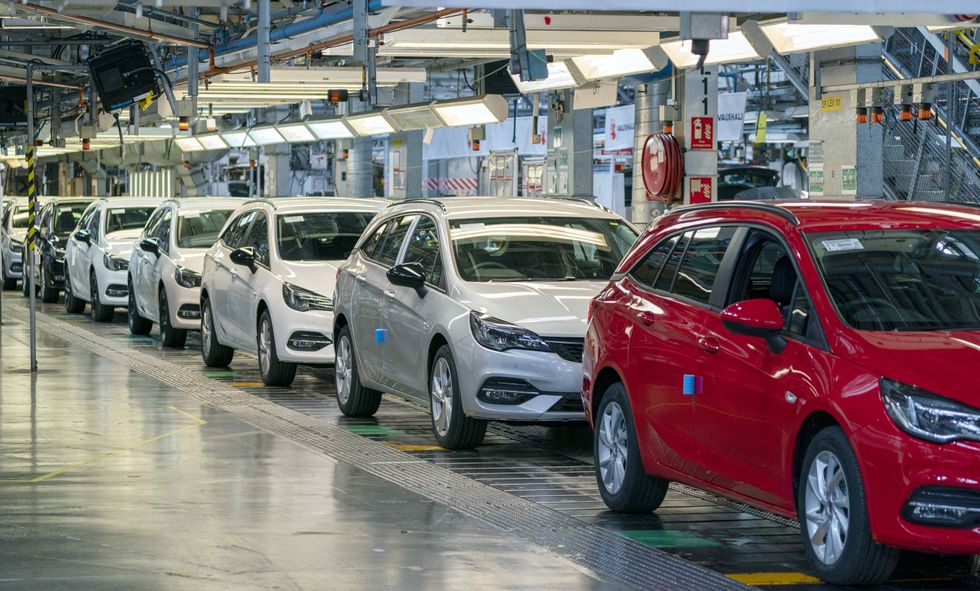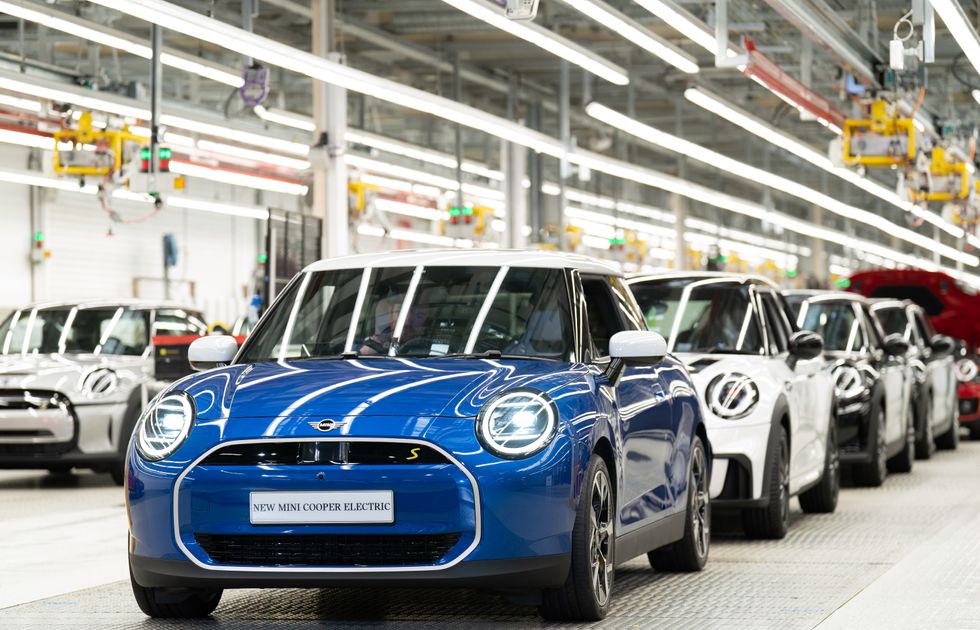Motorists may be forced to accept speed limiters on all petrol, diesel and electric cars - 'You can't turn it off!'

The DfT have been urged to introduce the measure to the UK | GETTY

Speed limiters fitted in vehicles cannot be turned off
Don't Miss
Most Read
Experts have warned motorists about EU speed limiters rules which could affect all petrol, diesel and electric cars across the UK.
The warning comes after regulation was introduced earlier this year which mandates that vehicles manufactured in the European Union must be fitted with Intelligent Speed Assist (ISA) technology.
The ISA technology uses GPS data to warn drivers when they are going over the speed limit on the road they're travelling on.
Under new European Union rules, all cars sold in showrooms need to be required to have ISA fitted, regardless of where the vehicle was manufactured.
Do you have a story you'd like to share? Get in touch by emailing motoring@gbnews.uk

The ISA technology uses GPS data and traffic-sign-recognition cameras
| PABut the introduction of speed limiters across Europe has sparked concerns among some drivers about their autonomy on the road.
One expert from BigWantsYourCar.com said: "Despite Brexit, these rules are still in effect, and they’re designed to ensure that vehicles automatically stay within the speed limit.
"The ISA technology uses GPS data and traffic-sign-recognition cameras to determine the speed limit in an area and adjusts the vehicle’s speed accordingly.
“Now, drivers do have the option to turn off the ISA system, but here’s the catch—it reactivates every time the car is started."
The expert added: "So, even if you temporarily disable it, you can't turn it off permanently. You can override it by pressing hard on the accelerator, but the system will switch back on with every new ignition. This is similar to the way Start-Stop technology works in many vehicles today."
"The introduction of speed limiters has led to concerns among some drivers who feel their freedom on the road is being restricted.
"There's a growing belief that some might look to modify their vehicles to remove or bypass these speed limiters. It's a natural reaction for those who feel that their personal choice and control over their vehicle are being taken away."
Manufacturers can choose from four options to alert drivers when exceeding speed limits. These range from visual cues to more intrusive measures.
Some systems vibrate the accelerator pedal or emit audio warnings. Others may actively reduce engine power or push back on the driver's foot.
But despite the loophole to turning off the speed limiters, the fact it reactivates every time the car is starts means there is no way to permanently turn off the technology.
This automatic reactivation has raised concerns among some motorists who feel their freedom on the road is being restricted.
The implementation of speed limiters has also presented challenges for car dealerships across the UK.
LATEST DEVELOPMENTS:

ISA tech was mandated on all EU vehicles in July
| PAThe expert stated: "From the dealership perspective, it's a challenging situation as well. This adds complexity and cost to the sales process, and it's something every dealership across the UK will have to manage.
"Right now, the regulation allows the system to be turned off temporarily, but we could see changes where the most effective strategies become compulsory."
Although the Department for Transport has commissioned research which looks at the positive and negative impacts that would come if the rules were to be introduced in Great Britain, with an update expected in the near future.
The DfT remains a member of the European New Car Assessment Programme which incentivises many technologies already included in the General Safety Regulation.
If any rules were to change in relation to the new safety features, the DfT stated that it would require consultation and legislation to amend the GB-type approval scheme.










